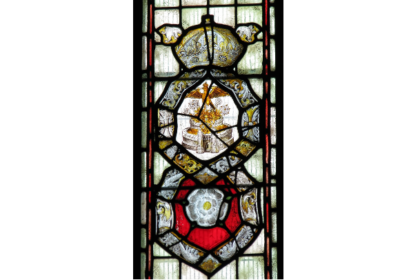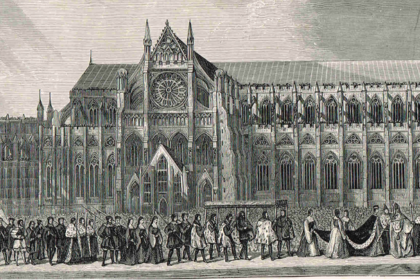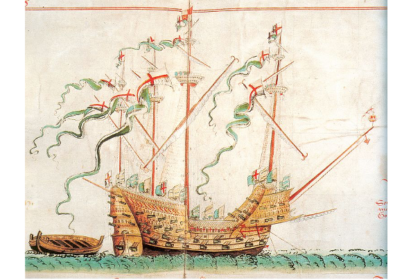ABOVE: Portrait of Henry VIII by the workshop of Hans Holbein, c.1537
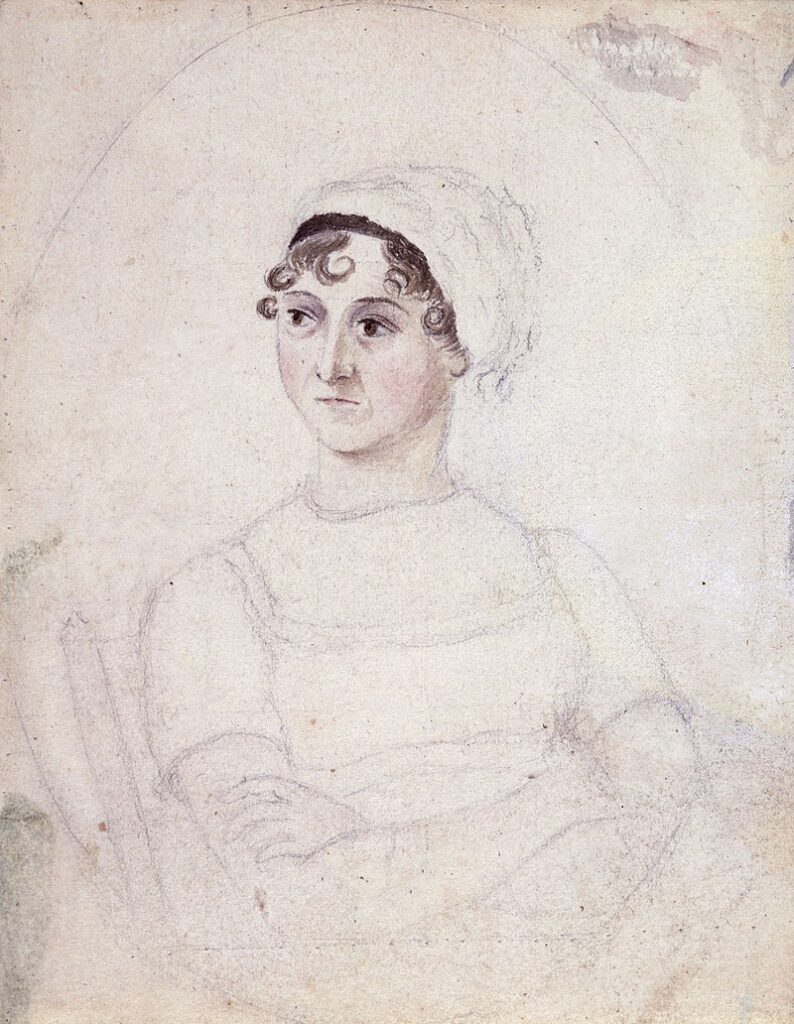
In November, I wrote about Jane Austen’s tongue-in-cheek account of Richard III from her satirical ‘History of England.’ Now, I present you with her perspective on Henry VIII. Much has been written on this notorious king, but Austen provides a truly unique perspective on Henry and his reign – particularly the Dissolution of the Monasteries!
For those who missed the post of Austen’s Richard III, you can find it here.
In 1791, Jane Austen, then 15, wrote a satirical ‘History of England’ for the amusement of her family. It was not published during her lifetime, however in 1922, a descendant of her brother allowed the piece to be published, along with some of her other early writings. Jane’s sister, Cassandra, to whom the work is dedicated, provided little illustrations throughout. The title page reads:
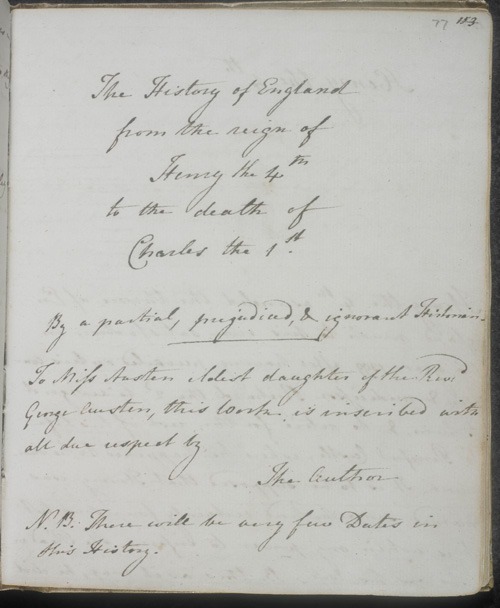
~
‘The History of England
from the reign of
Henry the 4th
to the death of
Charles the 1st
By a partial, prejudiced, & ignorant Historian
~~~
To Miſs Austen, eldest daughter of the Revd George Austen, this work is inscribed with all due respect by
The Author
N.B. There will be very few Dates in this History.’
~

HENRY the 8th
It would be an affront to my Readers were I to suppose that they were not as well acquainted with the particulars of this King’s reign as I am myself. It will therefore be saving THEM the task of reading again what they have read before, and MYSELF the trouble of writing what I do not perfectly recollect, by giving only a slight sketch of the principal Events which marked his reign. Among these may be ranked Cardinal Wolsey’s telling the father Abbott of Leicester Abbey that “he was come to lay his bones among them,” the reformation in Religion and the King’s riding through the streets of London with Anna Bullen. It is however but Justice, and my Duty to declare that this amiable Woman was entirely innocent of the Crimes with which she was accused, and of which her Beauty, her Elegance, and her Sprightliness were sufficient proofs, not to mention her solemn Protestations of Innocence, the weakness of the Charges against her, and the King’s Character; all of which add some confirmation, tho’ perhaps but slight ones when in comparison with those before alledged in her favour. Tho’ I do not profess giving many dates, yet as I think it proper to give some and shall of course make choice of those which it is most necessary for the Reader to know, I think it right to inform him that her letter to the King was dated on the 6th of May.
The Crimes and Cruelties of this Prince, were too numerous to be mentioned, (as this history I trust has fully shown;) and nothing can be said in his vindication, but that his abolishing Religious Houses and leaving them to the ruinous depredations of time has been of infinite use to the landscape of England in general, which probably was a principal motive for his doing it, since otherwise why should a Man who was of no Religion himself be at so much trouble to abolish one which had for ages been established in the Kingdom. His Majesty’s 5th Wife was the Duke of Norfolk’s Neice who, tho’ universally acquitted of the crimes for which she was beheaded, has been by many people supposed to have led an abandoned life before her Marriage—of this however I have many doubts, since she was a relation of that noble Duke of Norfolk who was so warm in the Queen of Scotland’s cause, and who at last fell a victim to it. The Kings last wife contrived to survive him, but with difficulty effected it. He was succeeded by his only son Edward.


